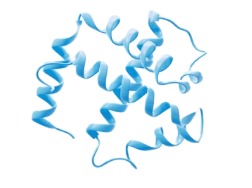Structural Proteins
Structural proteins are parts of cells or tissues that give shape, strength, or support. Think of collagen, elastin, keratin, cytoskeleton components—proteins that hold things together. Labs use recombinant structural proteins when making scaffolds, extracellular matrix models, or studying how cells interact with their physical environment. What labs care most about is correct folding, stability, and mechanical properties. If the protein mimics its natural form well, experiments are more meaningful and fewer artifacts show up.

MBS1301911-01
Recombinant Rabbit Myosin heavy chain, embryonic smooth muscle isoform, partial
Ask
MBS1301911-02
Recombinant Rabbit Myosin heavy chain, embryonic smooth muscle isoform, partial
Ask
MBS1301911-03
Recombinant Rabbit Myosin heavy chain, embryonic smooth muscle isoform, partial
Ask
MBS1301911-04
Recombinant Rabbit Myosin heavy chain, embryonic smooth muscle isoform, partial
Ask
MBS1301911-05
Recombinant Rabbit Myosin heavy chain, embryonic smooth muscle isoform, partial
Ask
MBS1301911-06
Recombinant Rabbit Myosin heavy chain, embryonic smooth muscle isoform, partial
Ask
MBS1301911-07
Recombinant Rabbit Myosin heavy chain, embryonic smooth muscle isoform, partial
Ask
MBS1301911-08
Recombinant Rabbit Myosin heavy chain, embryonic smooth muscle isoform, partial
Ask
MBS1301911-09
Recombinant Rabbit Myosin heavy chain, embryonic smooth muscle isoform, partial
Ask
MBS1301911-10
Recombinant Rabbit Myosin heavy chain, embryonic smooth muscle isoform, partial
Ask
MBS1301911-11
Recombinant Rabbit Myosin heavy chain, embryonic smooth muscle isoform, partial
Ask
MBS1301911-12
Recombinant Rabbit Myosin heavy chain, embryonic smooth muscle isoform, partial
Ask
MBS1301911-13
Recombinant Rabbit Myosin heavy chain, embryonic smooth muscle isoform, partial
Ask